“So,” I asked her, only half joking, “once you get there, do you think you’ll start dating guys your own age?”
She looked at me with a grin, then looked away. “Antsy, I think you’ve aged at least two years over the past few weeks,” she told me. “No matter what, you’re going to be a hard act to follow.”
For that, I gave her the best kiss of my career—during which Christina said, “Oh! Is that why you brushed your teeth this morning?”
The taxi finally arrived, honking from outside in repeated little blasts like a fire drill. Gunnar and I brought the luggage to the cabdriver, who, like every New York cabdriver, acted like it was an insult to his profession that he had to load luggage.
Thanks to all the horn blasts, neighbors had come out onto their porches to watch the Ümlauts’ departure. Then Mrs. Ümlaut threw up her hands “Ah! Now I remember!” She ran back into the house and came out with something in her hand. “This is for you,” she said to me. “Someone wanted to buy it last Saturday, but I told them it wasn’t for sale.”
She handed me the stainless-steel meat tenderizer.
“To remember us by,” she said with a wink.
This was the first hint that she had a sense of humor—and a twisted one, too. I was impressed.
“It’ll be one of my prized possessions—I’ll keep it with my rare paper clips,” I told her, and she looked at me funny. “No, really.”
“You must visit us!” she said, which I figured was about as likely as me visiting the International Space Station, but I nodded politely and said, “Sure.”
Then I heard a gruff voice from somewhere down the block intrude on our tender farewell moment.
“What about our plants, hah?” I turned to see the same paunchy, beady-eyed man, who had made nasty comments before, peering down from his second-floor balcony. From this angle, the guy looked like what you might get if you crossed a human being with one of those potbellied pigs. “You gonna send us back some freakin’ tulips?” he mocked.
Mrs. Ümlaut sighed, and Kjersten shook her head as she got into the taxi. “Why does everyone confuse us with Holland?”
“I know this guy,” says Christina. “His kid’s in my class. He eats pencil sharpenings.”
“Go on,” grunted the pig-man. “Get atta here! We don’t need ya!”
I’m about to tell the guy off—but then I hear a bang, and I see that Gunnar has jumped up on the trunk of the taxi—and, to the driver’s extreme chagrin, Gunnar climbs up so he’s standing on the taxi’s roof.
“You can’t get rid of me!” he yells to the pig-man. Then he turns to address all the neighbors, speaking loud and clear: “I’ll be everywhere—wherever you look. Wherever there’s a fight so hungry people can eat, I’ll be there. Wherever they’s a cop beatin’ up a guy, I’ll be there. I’ll be in the way guys yell when they’re mad, an’ I’ll be in the way kids laugh when they’re hungry an’ they know supper’s ready. An’ when our folks eat the stuff they raise an’ live in the houses they build—why, I’ll be there.”
I had to smile—I even applauded, because at last Gunnar had found a real quote. And with all due respect to John Steinbeck, as far as I’m concerned, Gunnar owns it now!
Gunnar took a long, elaborate bow, then hopped down from the roof, and did something very un-Gunnar-like. He gave me this sudden, death-grip hug that crunched my bones like a chiropractor. When he let go, we stood there for a moment, feeling stupid.
“Dewey Lopez didn’t get a picture of that, did he?” I asked.
“If he did, it’s your problem now.” Then he jumped in the taxi. “Ciao.”
Kjersten put her hand out the window for one final farewell grasp, and the taxi driver floored it, nearly leaving Kjersten’s hand behind with me. I watched as they accelerated down the street and turned the corner.
“Someday,” said Christina, “I hope to have friends as problematic as yours.”
My thoughts were still on Kjersten. I wish I could have come up with a quote like Gunnar did—y’know, the absolute the perfect parting words to leave Kjersten with.
But what do you say to a Scandinavian beauty who’s about to get on a plane and fly out of your life?
22.A Weed Grows in Brooklyn
Just as Old Man Crawley predicted, Paris, Capisce? had celebrities dragging their nails over one another’s backs to get in the door. We ended up having to schedule celebrities—one per night—so they didn’t all arrive at once. Dad, still recuperating, took the calls from home, chatting with agents, and the stars themselves. It was great! I got to meet more famous people than I thought I’d meet in a lifetime, then pour water over their heads.
With all this celebrity appeal, the restaurant was packed every night with people hoping to eat a fine meal, spot someone famous, and see them get drenched—either by me, or this guy they hired who looked and sounded like me, which I still find too creepy to talk about.
Christina even got into it, selling the pitchers we used on eBay for prices that could fund her college education someday.
Long story short, by the time Dad was ready to go back to work, Paris, Capisce? was the hottest restaurant in Brooklyn. We were all realistic enough to know that trends pass, that it wouldn’t last forever, but we’d also been through enough to know we gotta enjoy what we got, when we got it.
“It’s gonna be different now,” he told us. “Now that the restaurant’s always busy, there’s going to be a lot more work.”
So he doubled his staff, and cut his own hours in half, leaving the stress for someone else. He even has time to cook at home with Mom again, and watch a game or two on the weekends with me.
“When I finally go, I’m sure it’ll be a heart attack,” he said to me. “But let’s hope I go like your grandpa”—whose ticker didn’t give out until he was pushing eighty-eight.
It’s all about spin, Old Man Crawley had said. Spin makes a big difference, doesn’t it? My father almost died, but spin it a little, and it’s a life-changing warning that taught him to appreciate the important things in life. And the Ümlauts—they lost just about everything they had, but with the right spin, it becomes a shining opportunity to start fresh.
I went back to their block a few months later, out of curiosity more than anything else. The house was still empty, and still at the center of a dust bowl. The bank that now owned the home was still trying to find a buyer—but, see, my sister, in her attempt to keep Ichabod undisturbed, had started a rumor that the backyard didn’t just contain a single cat grave—it was, in fact, a local pet cemetery, and the final resting place of a hundred neighborhood critters—not all of them resting in peace.
Funny thing about rumors, the harder a rumor is to believe, the more likely it’s going to chase buyers away. Serves the bank right.
As I approached the house that day, I saw a single weed trying to poke its way up through a crack in the pavement. The first sign that the dust bowl was over! Then, as I looked more closely at the yards all around me, I could see patches of little ugly weeds popping up everywhere. Life was coming back to the street, and I thought how appropriate that the first plants to come back will be the plants all the neighbors will kill with more herbicide. Thus is the cycle of life.
Me, I had better things to do than watch the weeds grow—because for my fifteenth birthday, my parents got me a passport, and a plane ticket. Brooklyn weeds may have their own unique charm—but I hear spring break is beautiful in Sweden!
Читать дальше
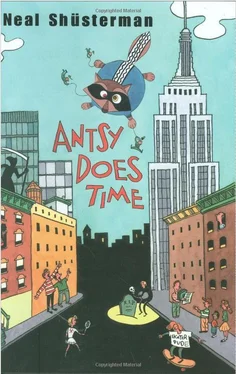
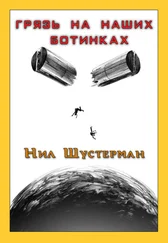
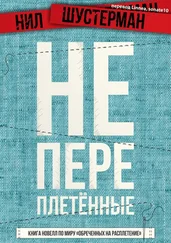
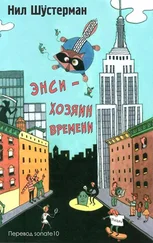


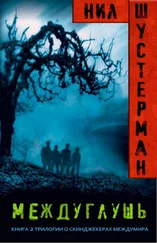
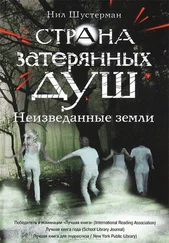
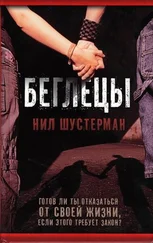

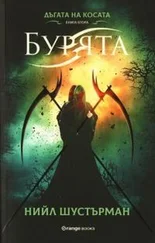
![Нил Шустерман - Жнец [litres]](/books/418707/nil-shusterman-zhnec-litres-thumb.webp)